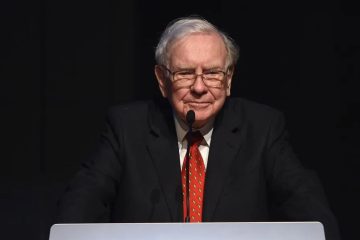VCs and startups are engaging private equity

The intricate dynamics of the venture capital process, wherein investments are transformed over several years into a successful IPO or a significant M&A transaction, are currently facing considerable strain. Investors are pressing for returns from venture capital firms and startups, despite the IPO market’s ongoing recovery, indicative of persistent economic concerns and various underlying factors. According to a report from the law firm Ropes & Gray in October, IPO activity in 2024 has surpassed that of the previous year; however, it continues to fall short of typical levels.
The prevailing dynamics are prompting venture capitalists and established startups to seek liquidity through sales to private equity, despite the fact that the returns are frequently less spectacular than those associated with a public offering.
In the interim, private equity engagement within the technology sector is gaining momentum. In the third quarter, technology accounted for 28.3% of total private equity deal value, a notable increase from 18.7% in the preceding quarter. This shift reflects a growing alignment between buyers and sellers regarding pricing, as noted by Pitchbook private equity analyst Garrett Hinds. Capital costs were lower, enabling private equity buyers to offer slightly higher bids. “Certain VC-backed firms that have maintained their private status for an extended period and possess adequate scale have attracted the attention of private equity,” Hinds remarked.
Looking ahead, he noted that private-equity buyers might expand their focus beyond the top-tier targets that were prominent in the third quarter. This year has witnessed significant private-equity transactions, highlighted by KKR and Dragoneer Investment’s $4.8 billion acquisition of educational technology firm Instructure Holdings, alongside Bain Capital’s $4.5 billion purchase of financial technology company Envestnet.
The appetite for private equity in the technology sector has been steadily increasing over the years. In the second quarter of 2022, technology represented 43.3% of the total value of private equity transactions, as reported by Pitchbook. The surge in 2022 was attributed to Elon Musk’s takeover of Twitter, now rebranded as X, as noted by Hinds. A significant take-private transaction involving a technology firm, backed by private equity, appears plausible once more, considering the unprecedented amounts of available capital. “A scenario may unfold involving a private equity-backed consortium, where several firms divide the equity, potentially supported by a coalition of private credit lenders for the debt financing,” Hinds remarked.
However, private equity firms exhibit a notable degree of selectivity in their approach to acquiring technology companies. Venture capital firms often engage in a strategy of diversifying their investments, banking on a select few to yield substantial returns. In contrast, private equity buyers tend to focus on firms with established business models, aiming to enhance their value and drive growth. Private equity firms exhibit a pronounced interest in software companies characterized by subscription business models and stable, recurring revenues. However, they are also keen to explore growth opportunities in other sectors, including AI-supportive data infrastructure, as noted by Ropes & Gray partner Kate Withers.
This indicates that private equity can afford to be selective and is generally not inclined to overvalue investments.
Lane Bess, the chief executive of cybersecurity startup Deep Instinct, stated that his family office, Bess Ventures, has invested in companies he believed had the potential to go public within a two to five year horizon. However, many of these investments have since surpassed that expected timeframe, as noted by Bess. “As we approach 2025, there are expressions of optimism regarding the potential for an open window in the coming year,” remarked billionaire Bess. He held the positions of president and CEO at Palo Alto Networks, as well as chief operating officer at Zscaler.
Three years prior, numerous startups in cybersecurity and various tech sectors commanded valuations of 12 to 15 times their projected revenue, he noted. Currently, valuations are situated within a revenue multiple spectrum of six to twelve times across various sectors, with notable exceptions including artificial intelligence and certain software-as-a-service companies, as noted by Bess.
A private-equity exit often lacks the allure and gratification associated with the celebratory ringing of the bell at a stock exchange, marking the triumph of a successful IPO. Measured realism appears out of place in the technology sector, often equated with a mentality that demands either grand ambitions or complete withdrawal. However, it may yield a beneficial consequence for technology startups by deterring marginal firms and investors from fueling persistent market bubbles.
Nevertheless, the concept proves challenging to advocate for certain individuals, such as Bess. “In my view, divesting my company to private equity would be the least preferable option,” he remarked. “This is attributable to their propensity to reduce expenses to the minimum, coupled with a tendency to allow the company to remain dormant until alternative strategies for consolidation or a strategic valuation for re-entry into public markets can be identified.”
It is possible that others do not align with his perspective. Bess remarked that much of this hinges on the interplay between investors and board dynamics to achieve liquidity. “Impatience abounds.” Investors are expressing a sentiment of impatience, indicating that their capital has been committed to that company for a considerable duration. I would welcome the prospect of an exit.








